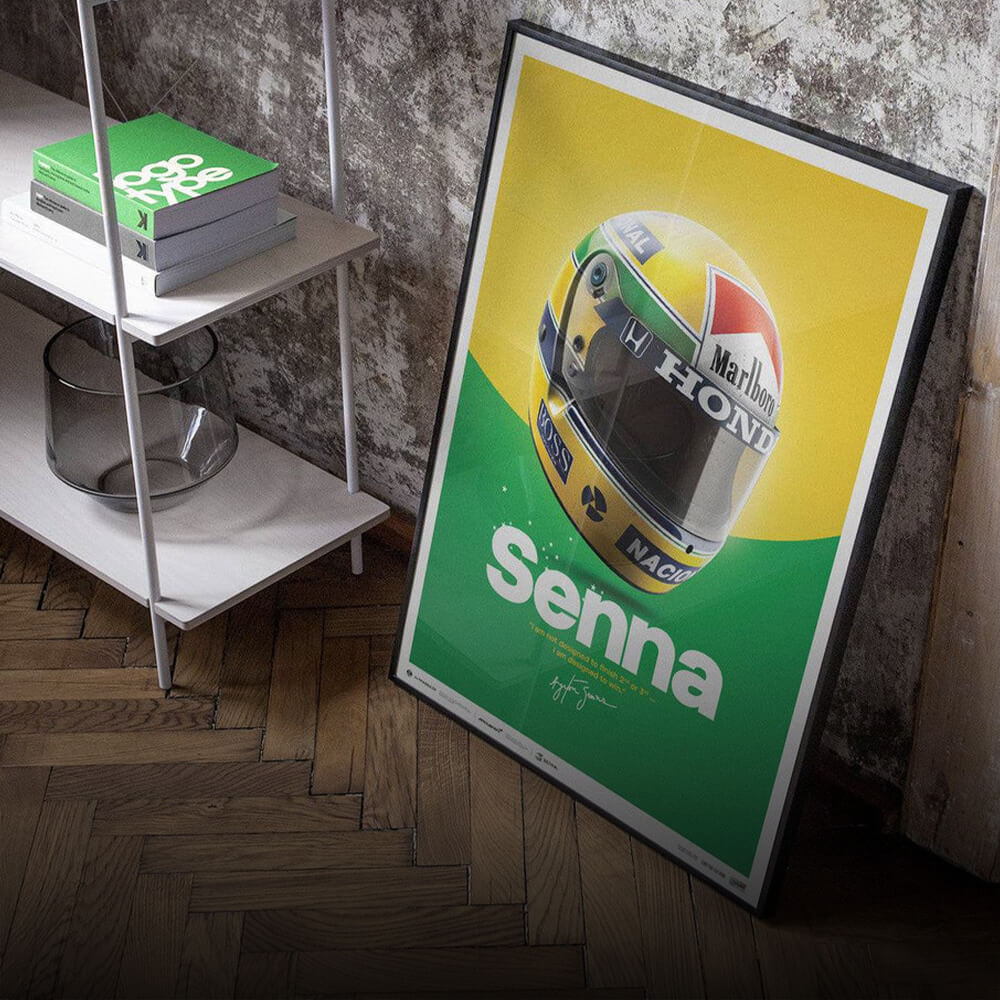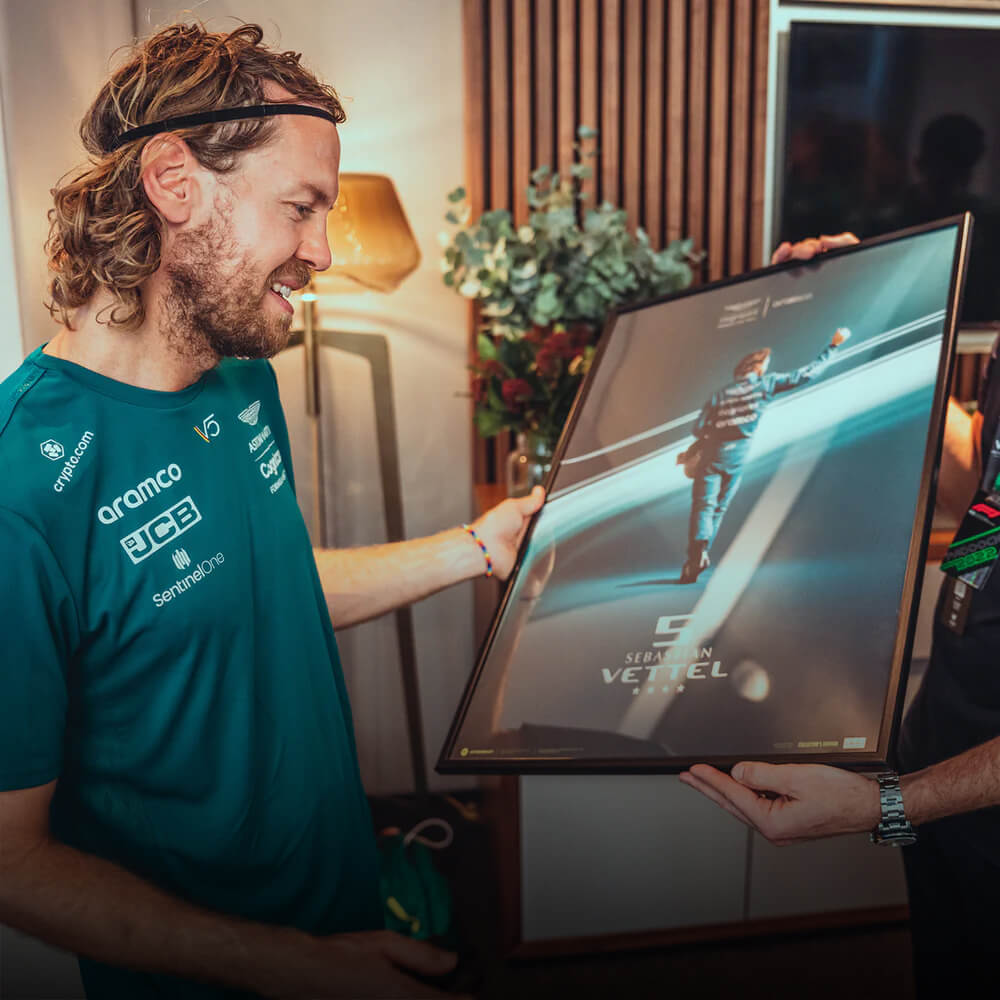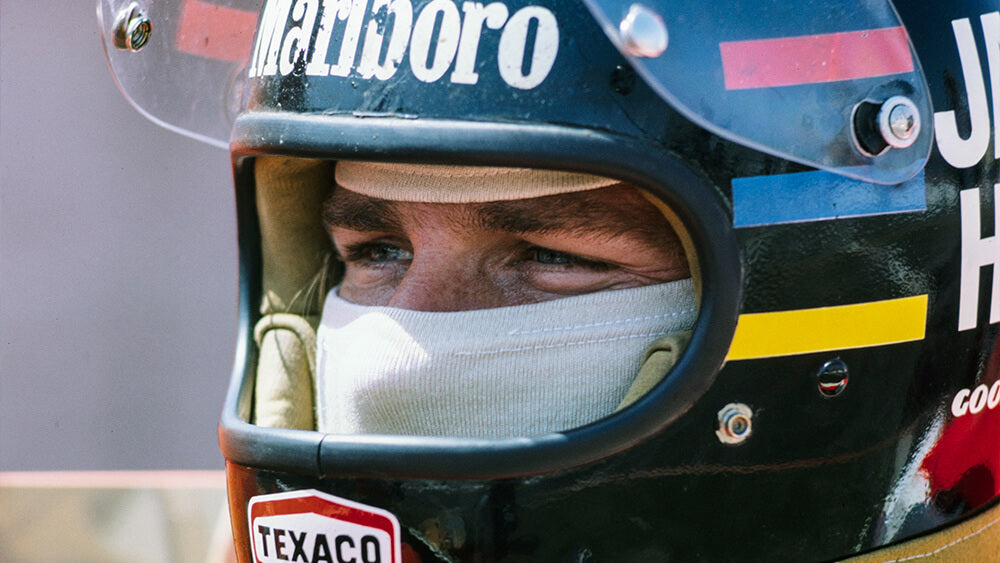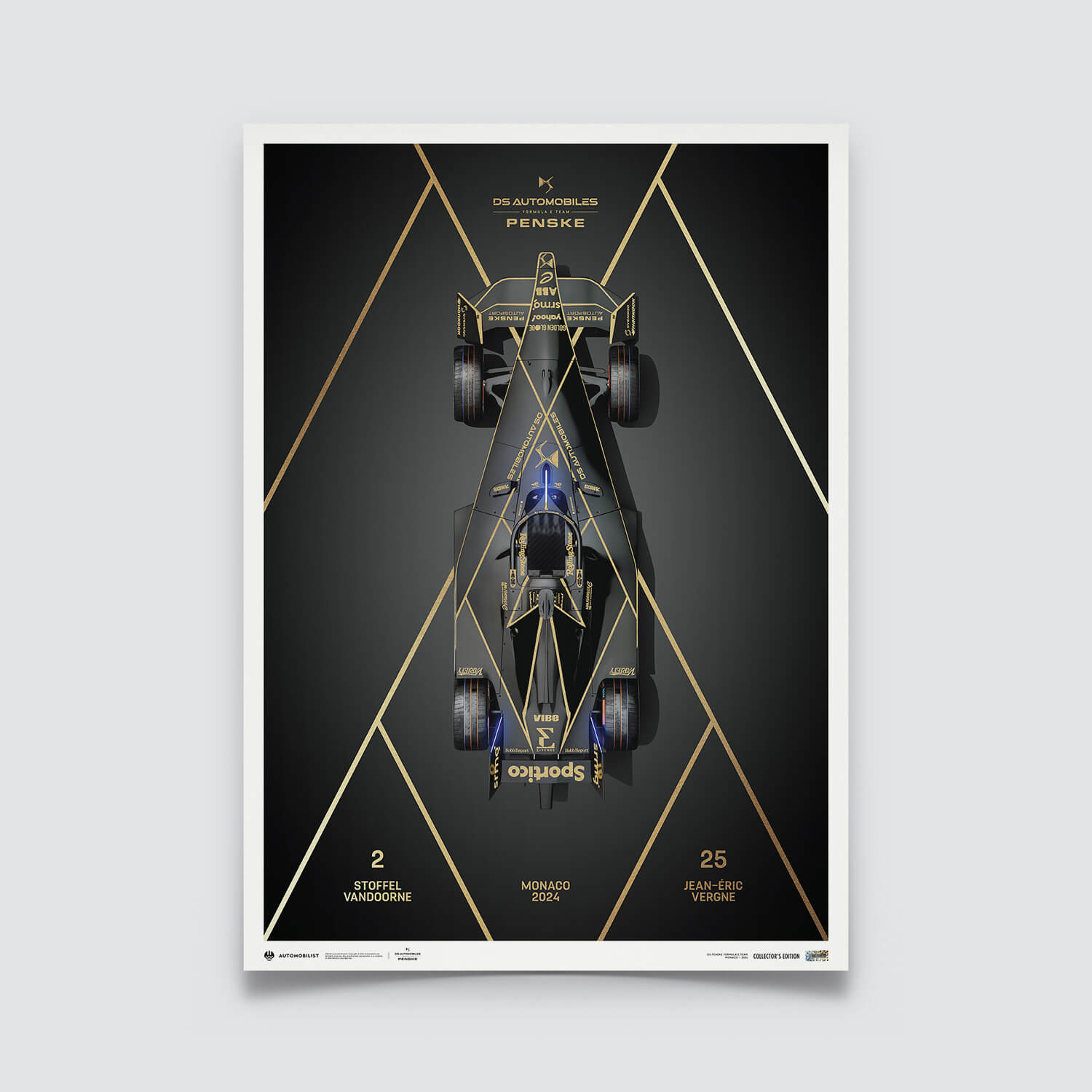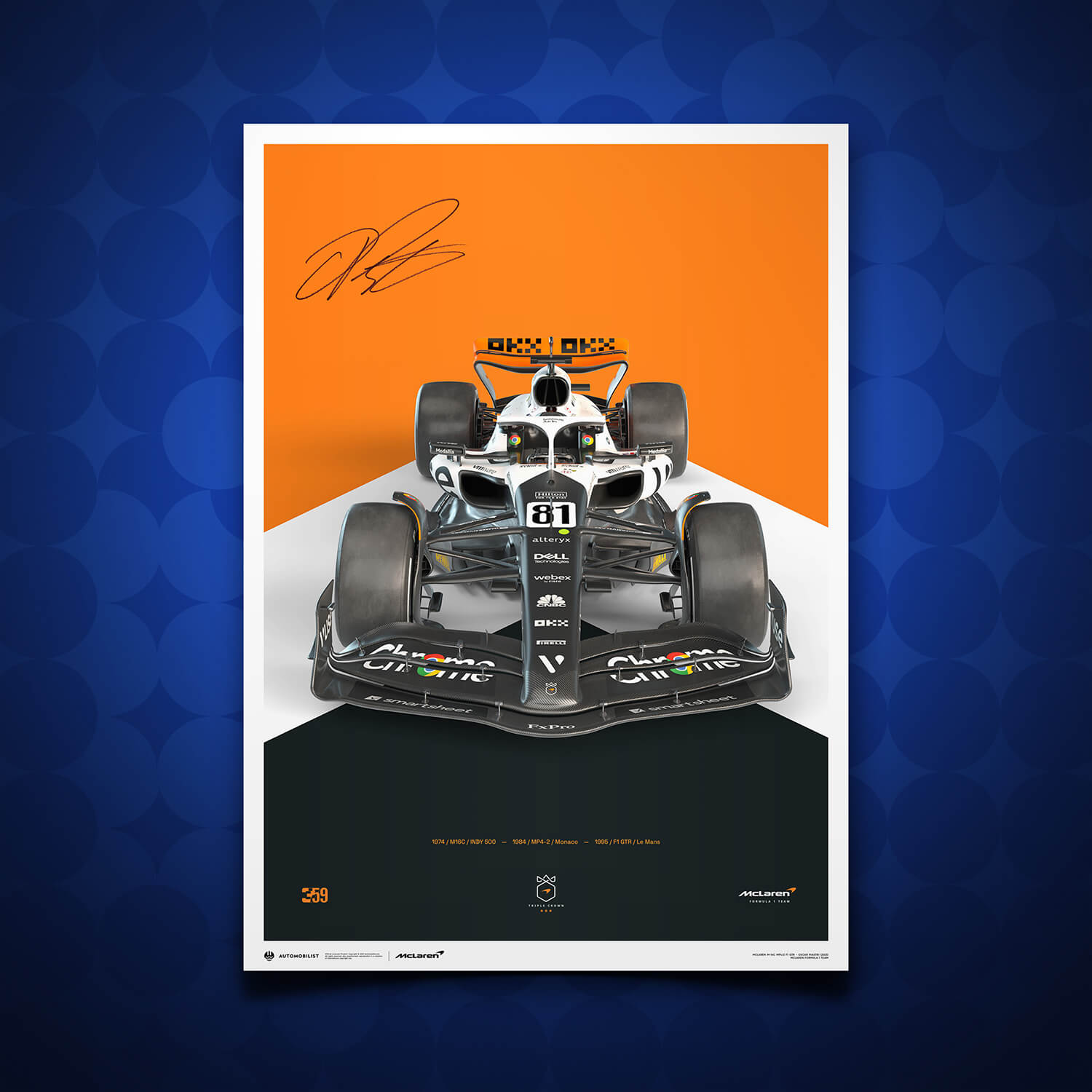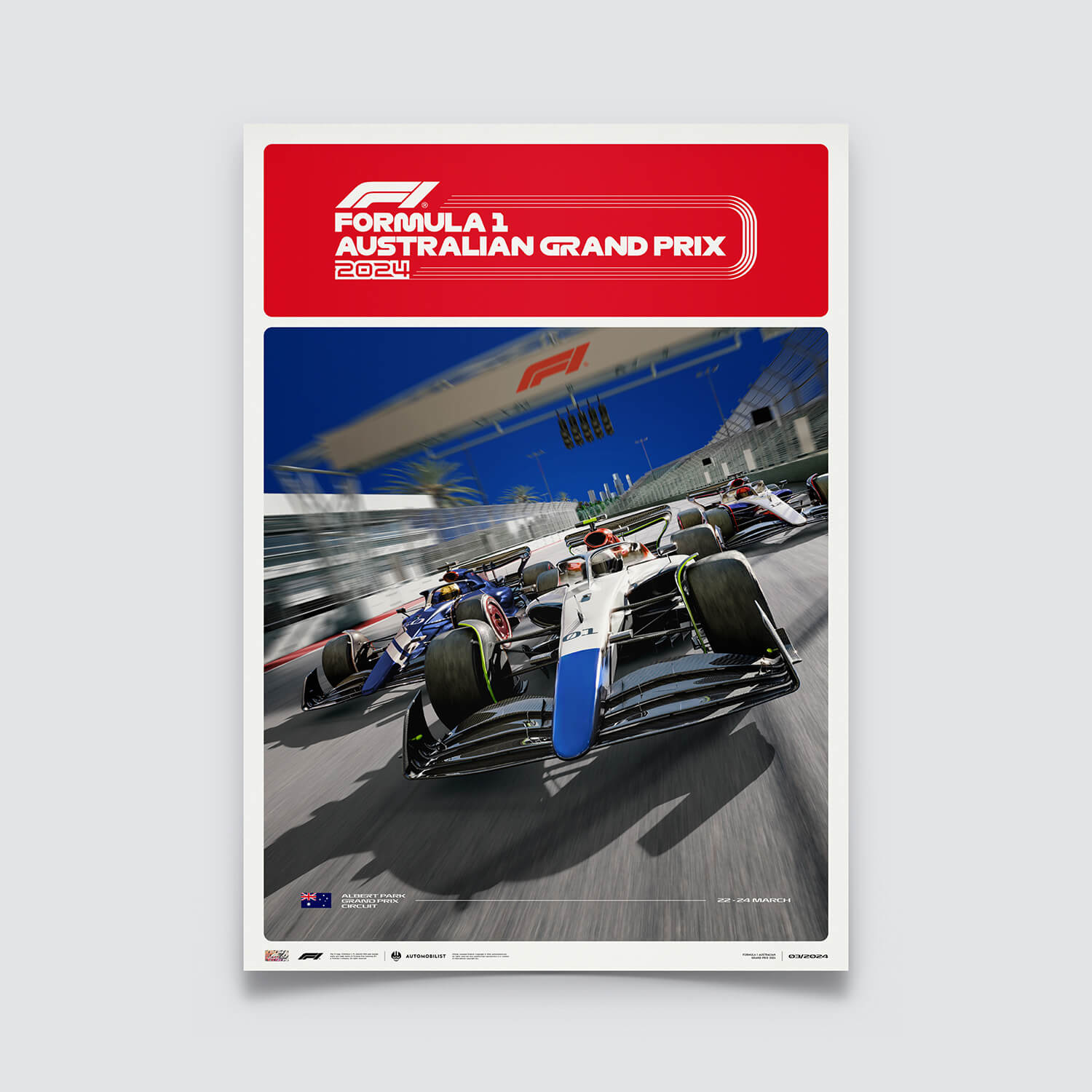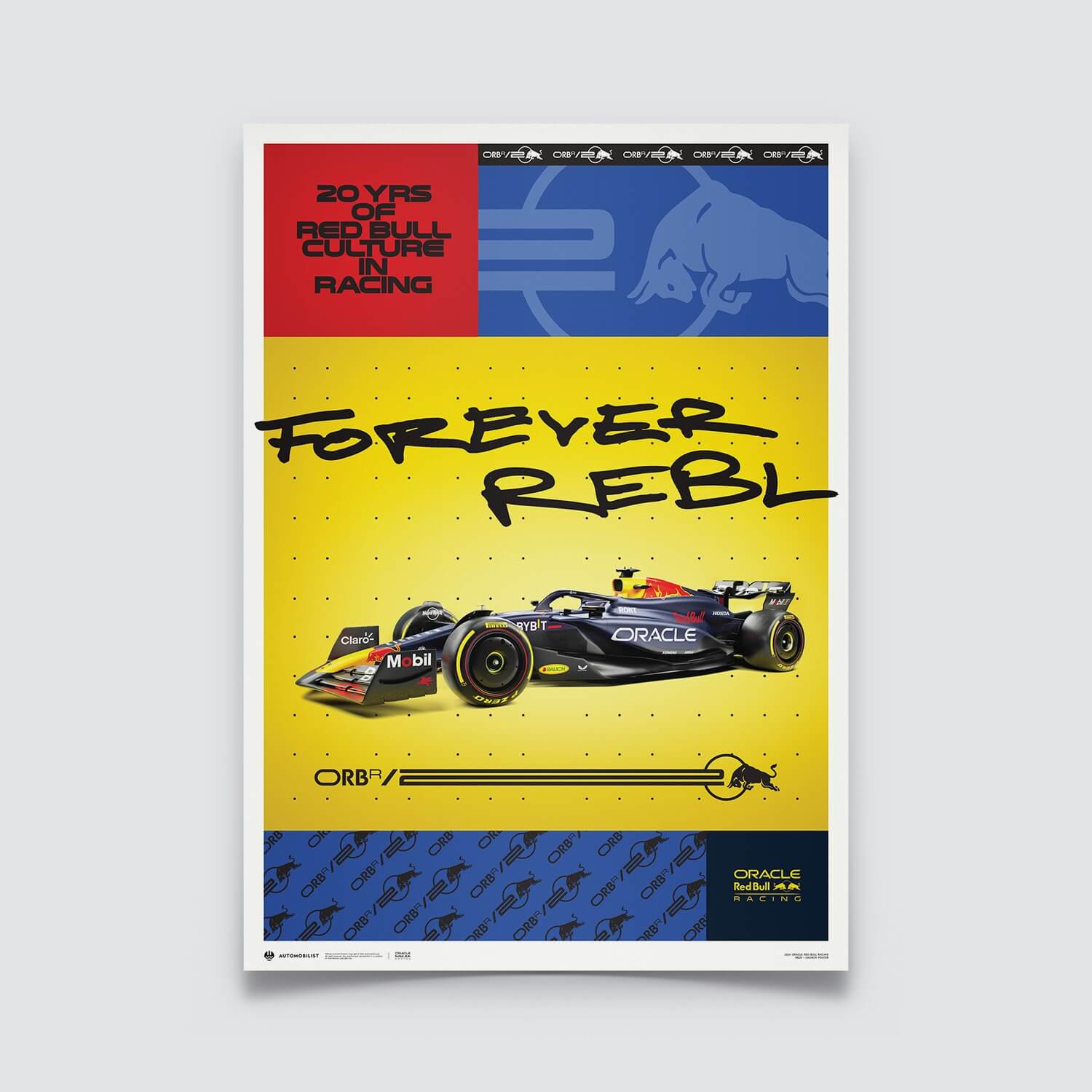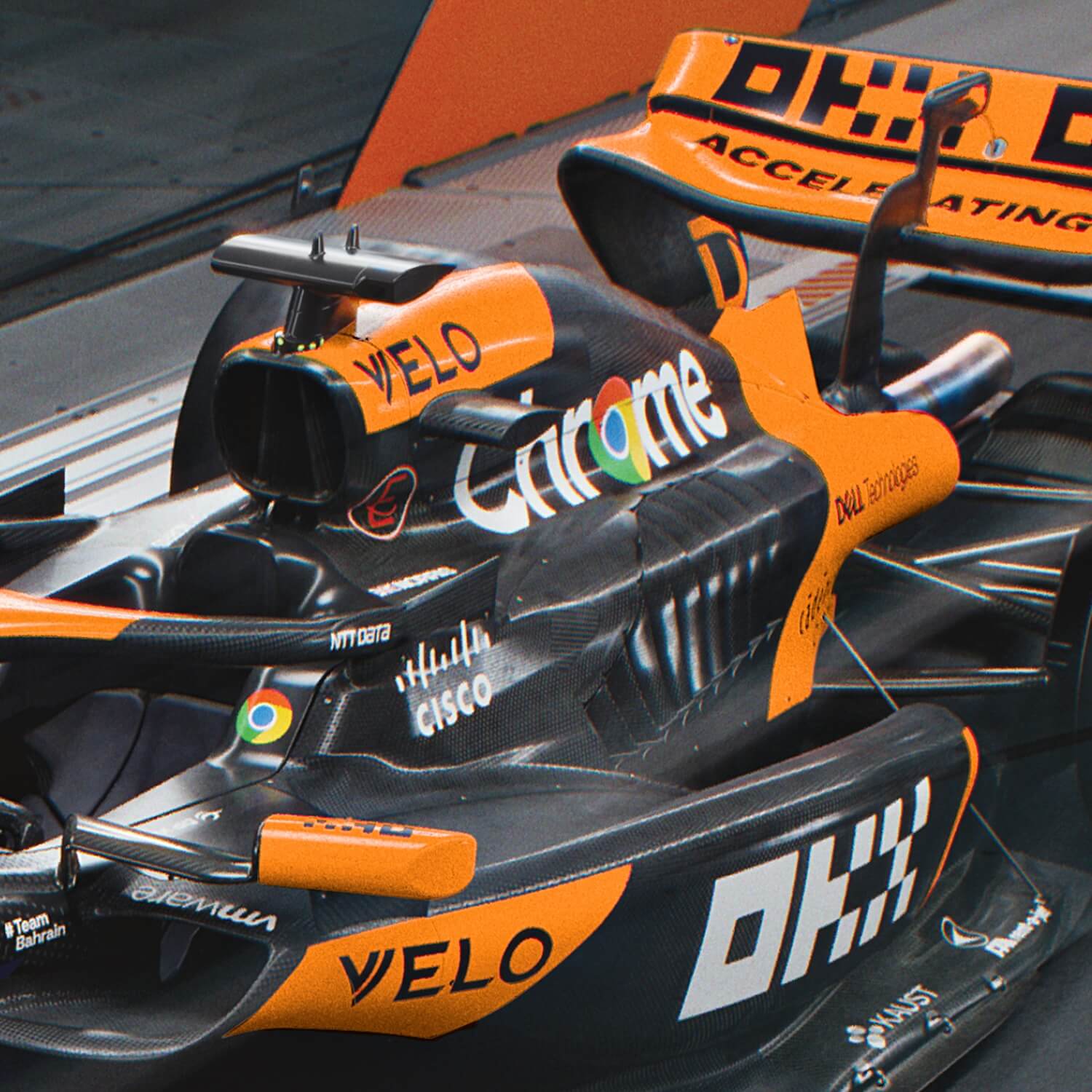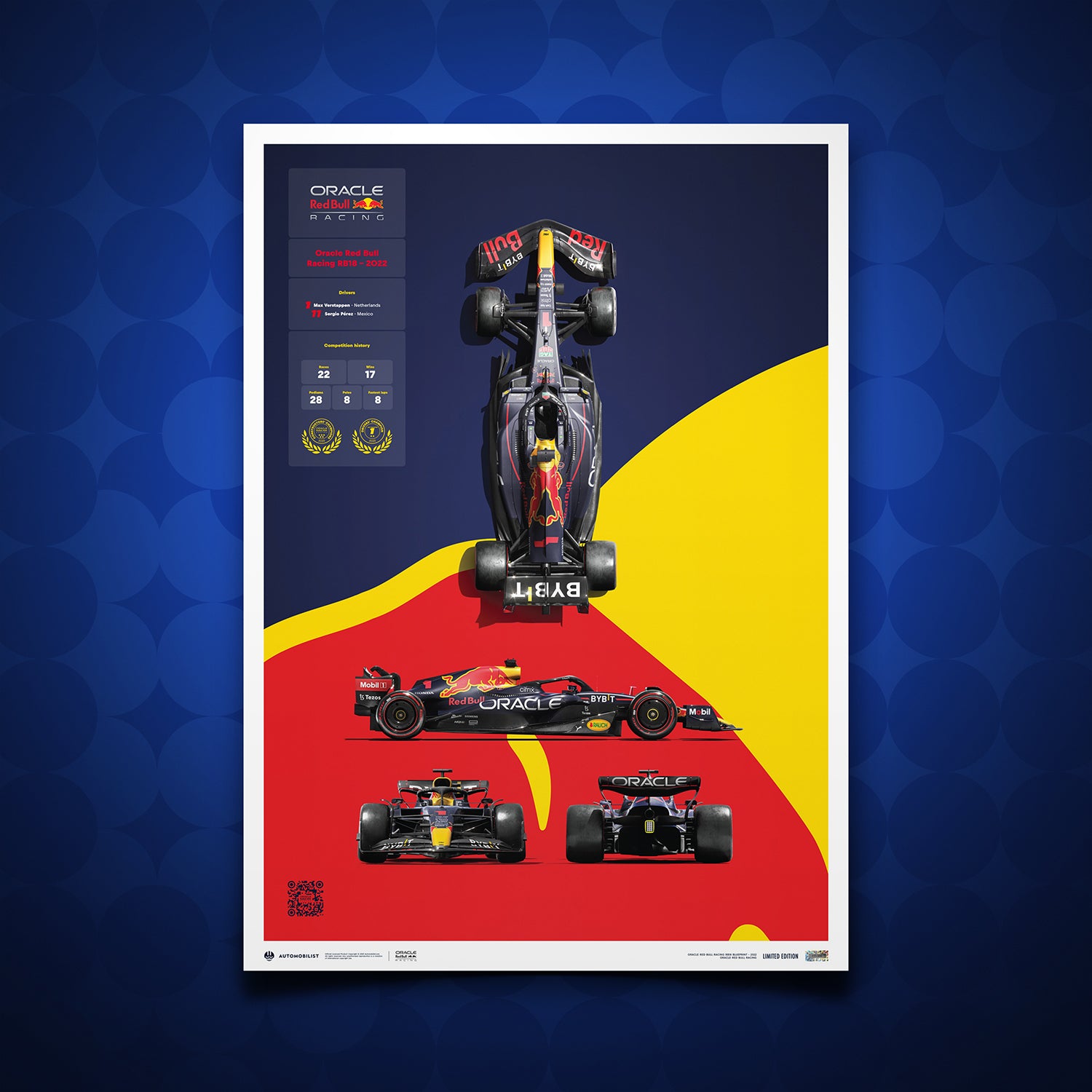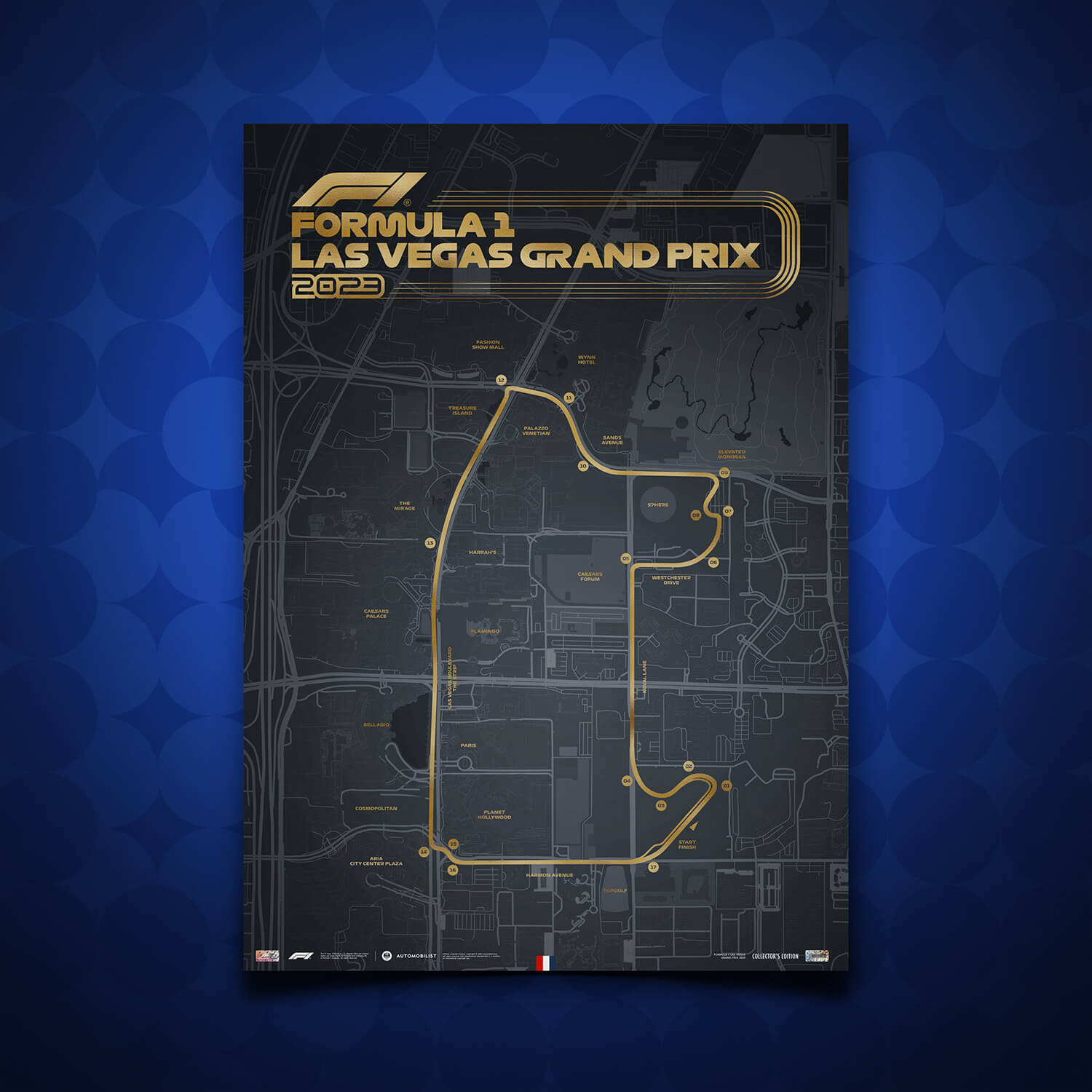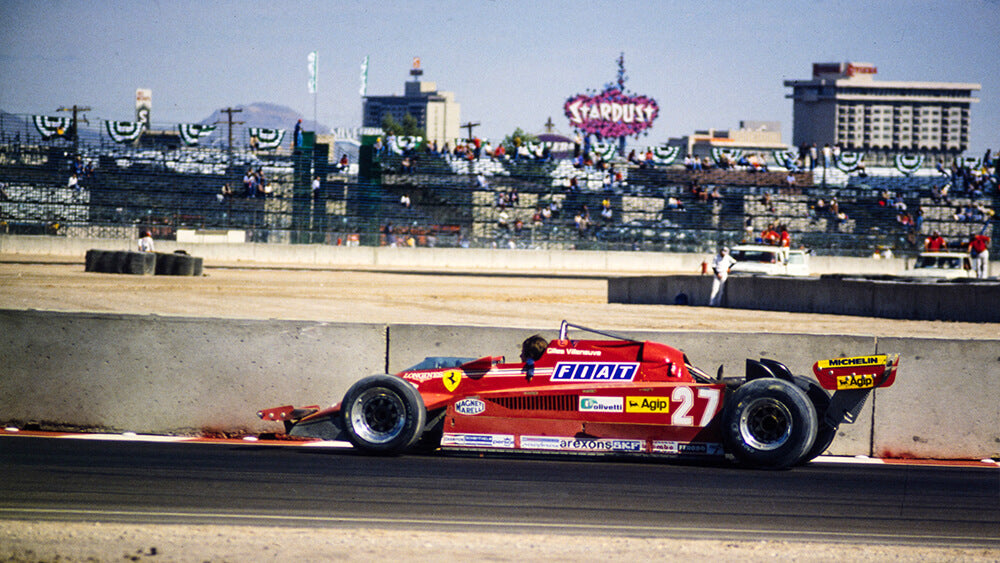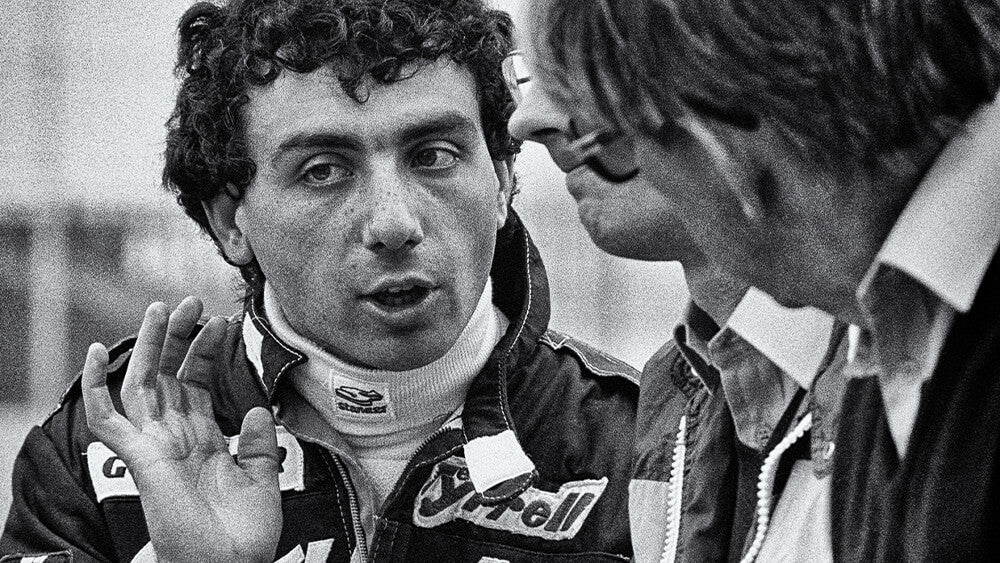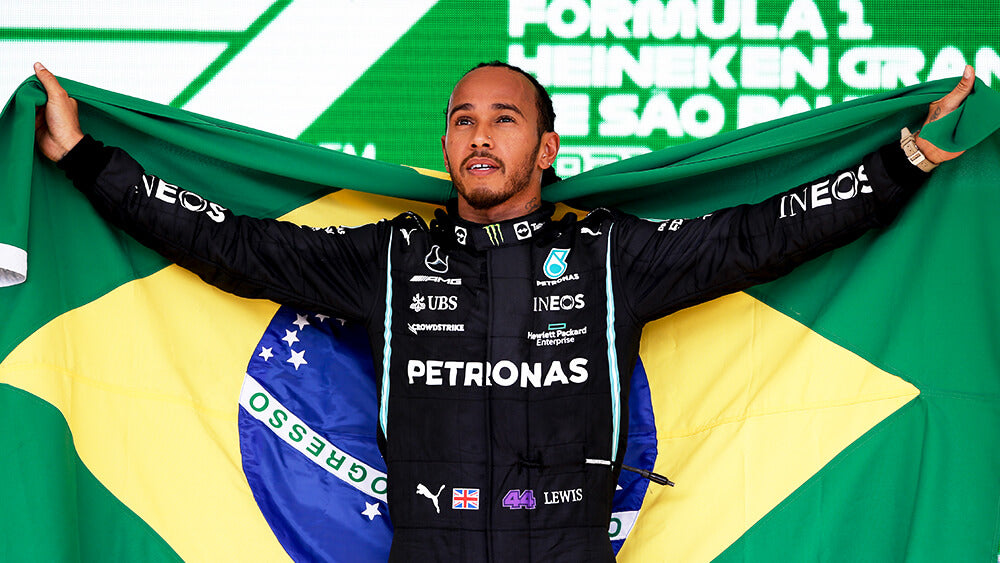James Simon Wallis Hunt. Women loved him; men envied him, and corner marshals learned to keep him at arm’s length.
From the beginning, James was “oppositionally” defiant, hyperactive and stubborn. He sought constant stimulus.
When he discovered racing on his 18th birthday during a club meeting at Silverstone, he immediately decided that he was going to become World Champion. He figured it would take him ten years to win the championship, and then he could live out his remaining days in wealth.
Loaded with an explosive combination of adrenaline and massive amounts of testosterone, Hunt was among the most aggressive racers in Formula 3.
With a reputation as a wild man with next to no race results, Hunt had little chance of progressing further until he was “discovered” by the young and extravagant Lord Hesketh. Under his leadership, James launched his six-year career in Formula 1.
 © Motorsport Images
© Motorsport Images
Adopted and encouraged by the Lord's joyous privateer F1 team, Hunt's unrelenting search for respect and success combined with his renewed dedication to substantially raise his performances. His ever-present aggression eventually found a breakthrough with his victory over Niki Lauda's Ferrari at the 1975 Dutch Grand Prix, in a car built in a shed at the back of Lord Hesketh's mansion.¨
But, not before drawing some lines.
Hunt's reputation skyrocketed overnight, and he quickly became the United Kingdom's new hope of a World Champion.
Unfortunately, Lord Hesketh's funding ran dry at the end of the 1975 season; James, the Grand Prix winner, was instantly out of a job and on the sidelines. It would only last for an instant.
When Emerson Fittipaldi unexpectedly stepped away from McLaren to create his Brazilian Copersucar team, the team instantly offered James that seat. Now part of a well-sorted team and its ultra-reliable M23, Hunt's natural speed was set free.
 © Motorsport Images
© Motorsport Images
One of James’ mottos was “to do what I want to do whenever I can. Life is too short to be bound by regulations when it isn’t absolutely essential.”
That modus vivendi manifested itself during negotiations for his first McLaren contract after Hunt baulked at the requirement that the team’s Marlboro-sponsored drivers would wear a blazer, shirt and tie and tailored flannel trousers’ at any public functions; for James, jeans and a T-shirt would do.
James lived in a 65-second minute, devouring as much stimulation as possible, for tomorrow was never a certainty. His McLaren team used his need for an on-the-limit life to their advantage. Team Manager Alistar Caldwell would joke about holding him in the pits, stoking his emotions on purpose until just before the end of a session so his aggression levels would be off the scale. Then, once on track, the team would watch as James set a pole-winning time on his first flying lap.
In return, James delivered the World Championship in his first year with McLaren, duelling with Niki Lauda for victories and beating a heavily injured Lauda by one point in Suzuka.
 © Motorsport Images
© Motorsport Images
James delivered the race of his life in the worst possible weather conditions and overcame a tyre failure to get third place and win enough points to get his title, while the Austrian decided to abandon the race because it was not safe.
For many, James’ words in Japan offered the best insight into this racer’s soul.
“I feel really sorry for Niki, said James. I feel sorry for everybody that the race had to be run in such ridiculous circumstances because the conditions were dangerous and I fully appreciate Niki’s decision. After an accident like he had, what else could he do? Quite honestly, I wanted to win the championship and I felt I deserved it. But I also felt Niki deserved to win the championship – and I just wish we could have shared it.”
During his championship season, when James’s back was against the wall and regaining ground seemed impossible, he was at his best. He was also a character of intangible grit who craved to produce results under extreme pressure when nothing less than his absolute best could save the day.
In 1976, when only winning could keep him in the championship, he won.
 © Automobilist
© Automobilist
Despite his title, McLaren grew tired of his continuing Hesketh-style social exploits, explosive emotions and temper tantrums that eventually decayed into a separation.
Hunt joined Wolf F1 in 1979, but lost his enthusiasm after his dear friend Ronnie Peterson died from botched medical care after a crash at Monza. Hunt and Clay Regazzoni had rescued him from his burning car.
Uncompetitive and depressed, Hunt quit F1 in mid-1979. He left behind an illustrious driving career, including ten victories over 93 starts and the 1976 World Championship.
However, he didn't leave Formula 1 altogether. James found his voice and an unexpected emotional outlet reporting on Formula 1 with Murray Walker on BBC2. His intuitive reasoning and straight-to-the-point comments were a breath of fresh air.
He also became a loving father of two sons, Tom and Freddie, whom he shared with his second wife, Sarah Lomax and a devoted owner of a German Shepherd named Oscar.
 © Motorsport Images
© Motorsport Images
Sadly, his years of off-track abuses damaged him beyond sustainability. Without any hint, James Hunt died of a heart attack just a day after proposing to fiancée Helen Dyson. He was 45.





